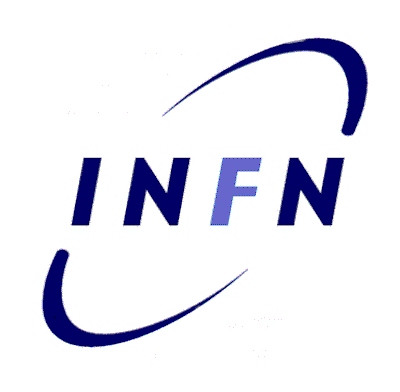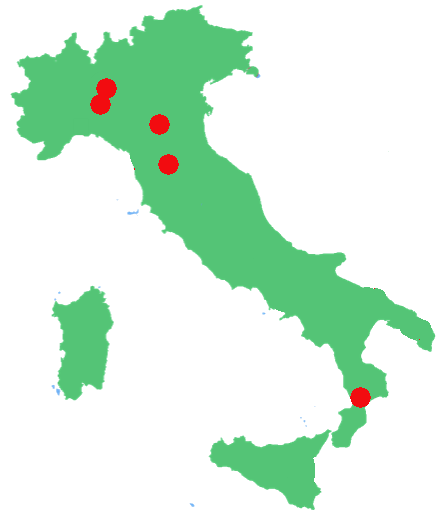Scientific activities of the various Research Units
Bologna
- Gauge theories in the small x limit, with particular emphasis on QCD. Study of the properties of scattering amplitudes in terms of reggeized gluon interactions. Effective field theories for small x evolution.
- Non perturbative physics in QFT models. An hand on this problem is given by the Functional Renormalization Group approach which provides an analytical tool to probe perturbative and non perturbative features of the dynamics of both effective and fundamental theories. In this framework one can study universal properties, renormalizability, predictivity, stability of a QFT. We are interested to use this environment to shed light to some aspects of to the standard model of particle physics and its extensions. Some features might be probed in future LHC experiments.
Cosenza
-
Our main research line is the study of (semi-)hard processes at high
energies, where large energy logs compensate the small coupling and
must be resummed to all orders, according to the BFKL approach of pQCD.
Both in leading and next-to-leading order, amplitudes factorize in a
universal part (Green's function) and process-dependent terms
(impact factors). Recent theoretical developments concern
the study of the Green's function in coordinate representation,
suitable for analyzing conformal properties and for comparison
with approaches such as "color dipole".
As for phenomenology, the main aim is to build predictions for
processes involving BFKL dynamics, such as Mueller-Navelet jet production at
LHC or high-energy photon-photon cross section.
Firenze
-
The recent activity has focused on two items:
-
QCD resummations
In the context of multiparton hard-scattering processes at hadron colliders, we are developing methods and techniques for all-order resummation of large logarithmic contributions due to radiation of soft and collinear partons. These theoretical results are applied to calculations and phenomenological studies of various production processes (SM Higgs boson, W and Z bosons, diphotons, heavy quarks, jets) at LHC energies. -
Infrared singularities and factorization in QCD
We are studying the infrared (IR) singular behaviour of QCD multiparton scattering amplitudes in the soft and collinear limits. Soft multiparton radiation is examined for calculations of next-to-next-to-next-to-leading order (N3LO) QCD corrections to hard-scattering processes. The study of the multiparton collinear limit is motivated by the discovery (made by our group) of the violation of collinear factorization in the space-like region (i.e., initial-state collinear radiation), and by the ensuing implications for multijet processes in hadron collisions.
Milano Bicocca
-
The Milano Bicocca group deals with several topics in the framework of
collider physics phenomenology. It is best known for is the development of
the POWHEG method, for interfacing NLO calculations with Shower Monte Carlo
generators. The resulting code, known as the POWHEG BOX program, includes
more than 40 processes for the production of electroweak vector
bosons, heavy flavours, Higgs boson and jets at NLO QCD +shower accuracy
and, for some of them, reaching QED NLO accuracy.
The POWHEG BOX has now reached a high degree of automation, since the
calculation of the Born, real and virtual diagrams can be done in an
fully-automated way, using the interfaces to programs like Madgraph 4 and 5,
GoSam and OpenLoops.
Very recently the group has developed a method for interfacing NNLO calculations to shower Monte Carlo generators, providing in fact the first NNLO generator for Higgs production interfaced to a Parton SHower.
Pavia
-
The recent activity deals with precision calculations and development of
Monte Carlo generators for particle physics phenomenology at the LHC.
In collaboration with the Milano Bicocca unit, we are working
on the development of the POWHEG event generator. In particular we have
recently realized a consistent implementation of NLO electroweak and QCD
corrections to single W and Z production in the general POWHEG BOX framework.
We have also developed a new approach to the fully exclusive simulation of
prompt photon production in the Wγ process, relying upon the POWHEG+MiNLO
method. Another line of research is the study of electroweak corrections
to multiparticle production processes (like V+jets, V=γ,Z) in the
asymptotic Sudakov regime. The general Denner-Pozzorini algorithm accounting
for the Sudakov logarithmd has been implemented in the multileg event
generator ALPGEN.
^ Back to Top


